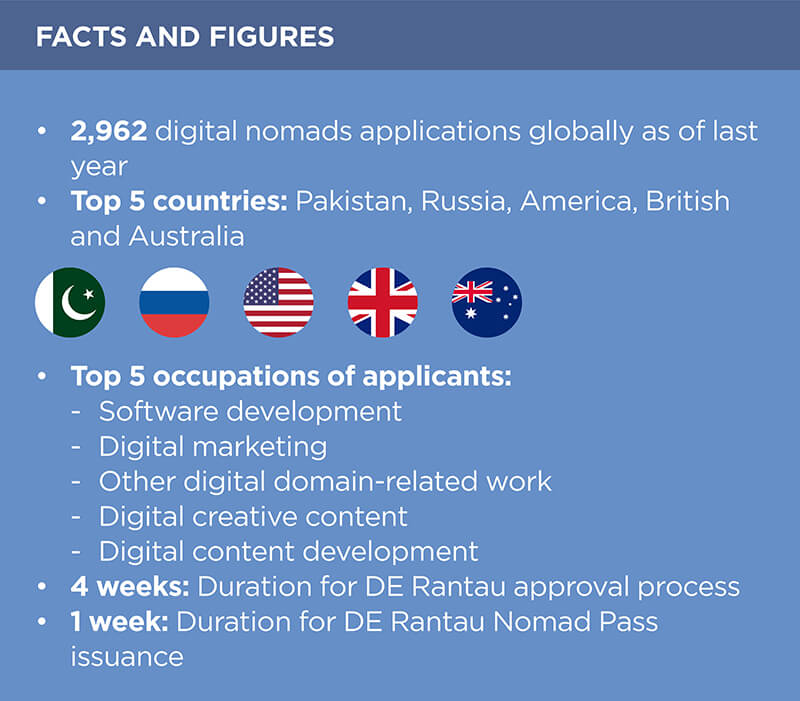.jpg)
DE Rantau is Malaysia's standout initiative for establishing itself as the top digital nomad hub in the world. The programme has made great strides since its launch last September, enabling more and more people to benefit from digital professional mobility and tourism with greater ease than ever before.
The government is working towards offering more destination options around the nation to travel while working. The launch of Penang and Langkawi, Kedah as the locations for DE Rantau in 2022 enables digital nomads to simultaneously commit to remote work and bask in the beauty of island life.
Recognised by both the government and the international community, it offers nomads who are looking for a change of scenery an attractive and comprehensive range of professional options.

Apart from the introduction of the DE Rantau Nomad Pass, which will support the facilitation of foreign digital nomads' stay in Malaysia for 12 months, the Ministry of Communications and Digital (KKD) through Malaysia Digital Economy Corporation (MDEC) has created a vibrant ecosystem supporting the digital nomad lifestyle to regain the balance in working and living.

Even before the pandemic, nomads had been roaming far and wide to work and live according to their desires. But it was only due to global events that this trend truly blossomed - now more people are opting for a life unfettered by borders, propelled forward with technology in hand.

KKD, through MDEC, has crafted a revolutionary mobile application called DE Rantau Platform. This all-inclusive ecosystem provides digital nomads living in Malaysia access to accommodation hubs and an array of local services. Under the Malaysia Digital (MD) initiative, DE Rantau is one of the first two Malaysia Digital Catalytic Programmes (PEMANGKIN) planned for 2022. It is designed to create substantial economic spillover through equitable access to digital tools, knowledge, and income opportunities.
The programme is expected to inject a total of RM4.8 billion into the local economy by 2025. In its first phase, the identified digital nomad hubs will include Penang, Langkawi, Kedah and Kuala Lumpur.


.jpg)




